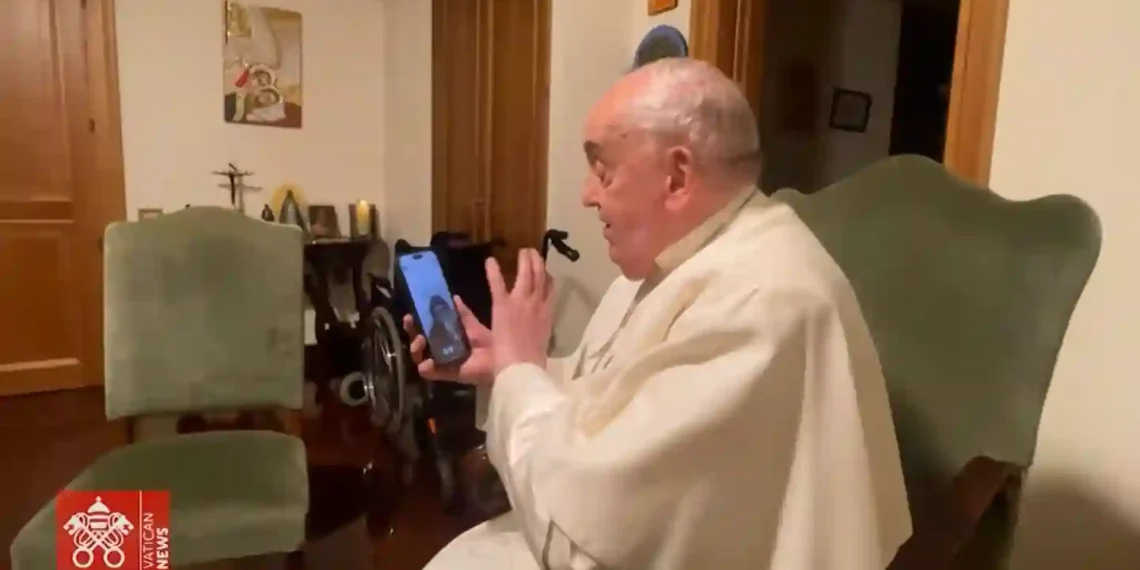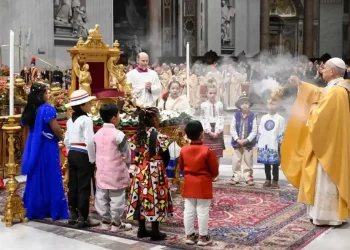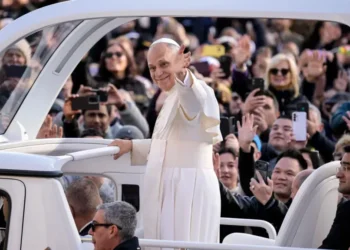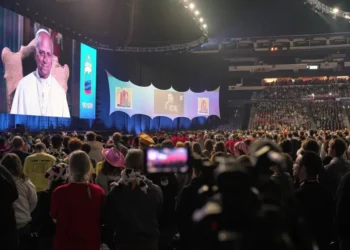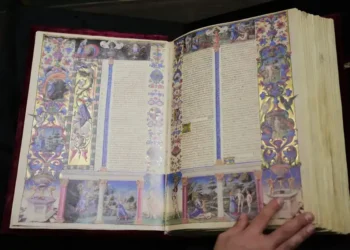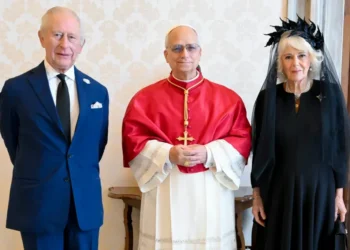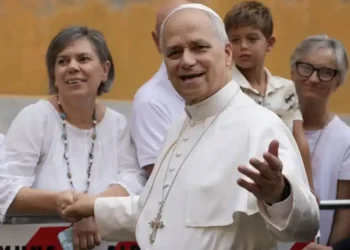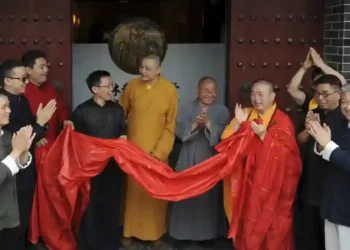Pope’s Daily Calls Bring Hope to Gaza’s Christian Community Amidst War
In the midst of unimaginable hardship, a daily phone call from Pope Francis became a beacon of hope for Gaza’s small Christian population. As the region faced the devastating impact of war, the pope’s calls offered a sense of peace and reassurance that Gaza was not forgotten.
For 18 months, since the start of the ongoing conflict, Pope Francis called the Holy Family Church in Gaza City every evening, around 8 PM. Father Gabriel Romanelli, the church’s pastor, shared with CNN that these calls often lasted 15 minutes. During these conversations, the pope would speak with church leaders and offer words of comfort to the Palestinian families seeking refuge within the church’s walls.
The calls, though brief, were more than just a formality. For the Christians of Gaza, they were a reminder that despite the devastation around them, they were not alone. “He shows us his paternity. He is very close to us,” Father Romanelli said. The pope’s voice became a daily lifeline, a call for peace amid the destruction that defined the region’s existence.
Pope Francis didn’t just call to check in; he repeatedly called for an end to the war. From the very start, he spoke out against the Israeli siege on Gaza and continually advocated for peace. In his final Easter message, delivered the day before he passed away, the pope shared his heartfelt thoughts on Gaza. “I think of the people of Gaza, and its Christian community in particular,” he said, urging a ceasefire, the release of hostages, and humanitarian aid for the region.
“I appeal to the warring parties: call a ceasefire, release the hostages, and come to the aid of a starving people that aspires to a future of peace!” he urged in his message.
For Gaza’s Christians, the Holy Family Church has been more than just a place of worship. It’s become a sanctuary—a rare spot of safety amidst the chaos. The church, which serves as Gaza’s only Catholic parish, has opened its doors to displaced families. Tents now fill the church’s courtyard, providing refuge from the ongoing airstrikes. Sadly, the violence has taken its toll, and according to the church and Gaza’s Ministry of Health, around 20 members of Gaza’s Christian community have lost their lives to Israeli strikes. Despite the danger, Muslims and Christians alike have sought shelter at the church.
Musa Antone, a Christian resident of Gaza, recalled the pope’s unwavering support. “His Holiness the pope was not an ordinary person,” he said. “He was a man of faith who inquired about both Christians and Muslims.” For years, Antone said, Pope Francis had been a steady source of strength for Gaza’s Christian community, encouraging them to stay despite the constant threat of violence.
While the Christian community in Gaza has shrunk significantly—once numbering several thousand, it now stands at fewer than 1,400—Pope Francis’s calls and his steadfast concern for their welfare played a key role in keeping the community from leaving. “He was concerned about all of Gaza,” said Antone. “He provided reassurance and strength to the Christian community so that they would not leave Gaza.”
Even after Pope Francis’s passing, Gaza’s Christians remain committed to carrying forward his spiritual legacy. “It is true that we have lost his body, but we will not lose him as a spirit,” Antone said. The pope’s words and actions have left an indelible mark on their hearts.
Though Pope Francis never visited Gaza—his only visit to the region was to the occupied West Bank in 2014—his presence was deeply felt. The Holy Family Church described his relationship with Gaza’s Christian community as a “father’s anxiety for his children.” Father George Antone, head of the church’s emergency committee, remembered how the pope always sought to dispel fear. “He always reassured us that we should not be afraid,” he said. “He was with us, and he prayed for us.”
Gaza’s Christians, a tiny minority within an overwhelmingly Muslim society, could have easily been overlooked. But Pope Francis, despite their small numbers—less than 0.0001% of the world’s Catholic population—made them a priority. He could have called less frequently. He could have chosen not to call at all. But he didn’t.
Even when he was critically ill, the pope continued to make his daily calls. Father Romanelli recalled the last call, which took place on a Saturday, just days before the pope’s passing. It lasted less than a minute. “He was so sick but insisted on doing that call as usual,” said Romanelli.
Pope Francis’s calls to Gaza, particularly in the final years of his life, show the power of compassion and solidarity. His daily outreach, even in the face of illness and exhaustion, has left a lasting impression on those in Gaza. For Gaza’s Christian community, it’s a reminder that even in the darkest times, there’s always light to be found through the kindness and care of others.
This article was rewritten by JournosNews.com based on verified reporting from trusted sources. The content has been independently reviewed, fact-checked, and edited for accuracy, neutrality, tone, and global readability in accordance with Google News and AdSense standards.
All opinions, quotes, or statements from contributors, experts, or sourced organizations do not necessarily reflect the views of JournosNews.com. JournosNews.com maintains full editorial independence from any external funders, sponsors, or organizations.
Stay informed with JournosNews.com — your trusted source for verified global reporting and in-depth analysis. Follow us on Google News, BlueSky, and X for real-time updates.
